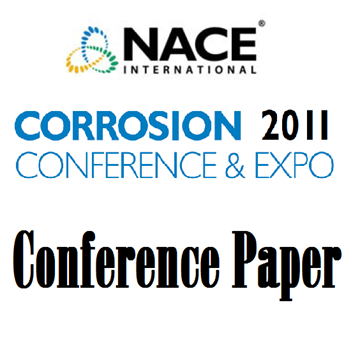Search
11125 Elemental Sulfur Corrosion and Inhibition in the Presence of Sulfur Solvent
Also Purchased
11398 Investigation of Elemental Sulfur Corrosion Mechanisms
Product Number:
51300-11398-SG
ISBN:
2011 11398 CP
Publication Date:
2011
$20.00
11120 Sulfur Corrosion Due To Oxygen Ingress
Product Number:
51300-11120-SG
ISBN:
2011 11120 CP
Publication Date:
2011
$20.00
11121 Effects of Depositing Characteristic and Temperature on Elemental Sulfur Corrosion
Product Number:
51300-11121-SG
ISBN:
2011 11121 CP
Publication Date:
2011
$20.00




